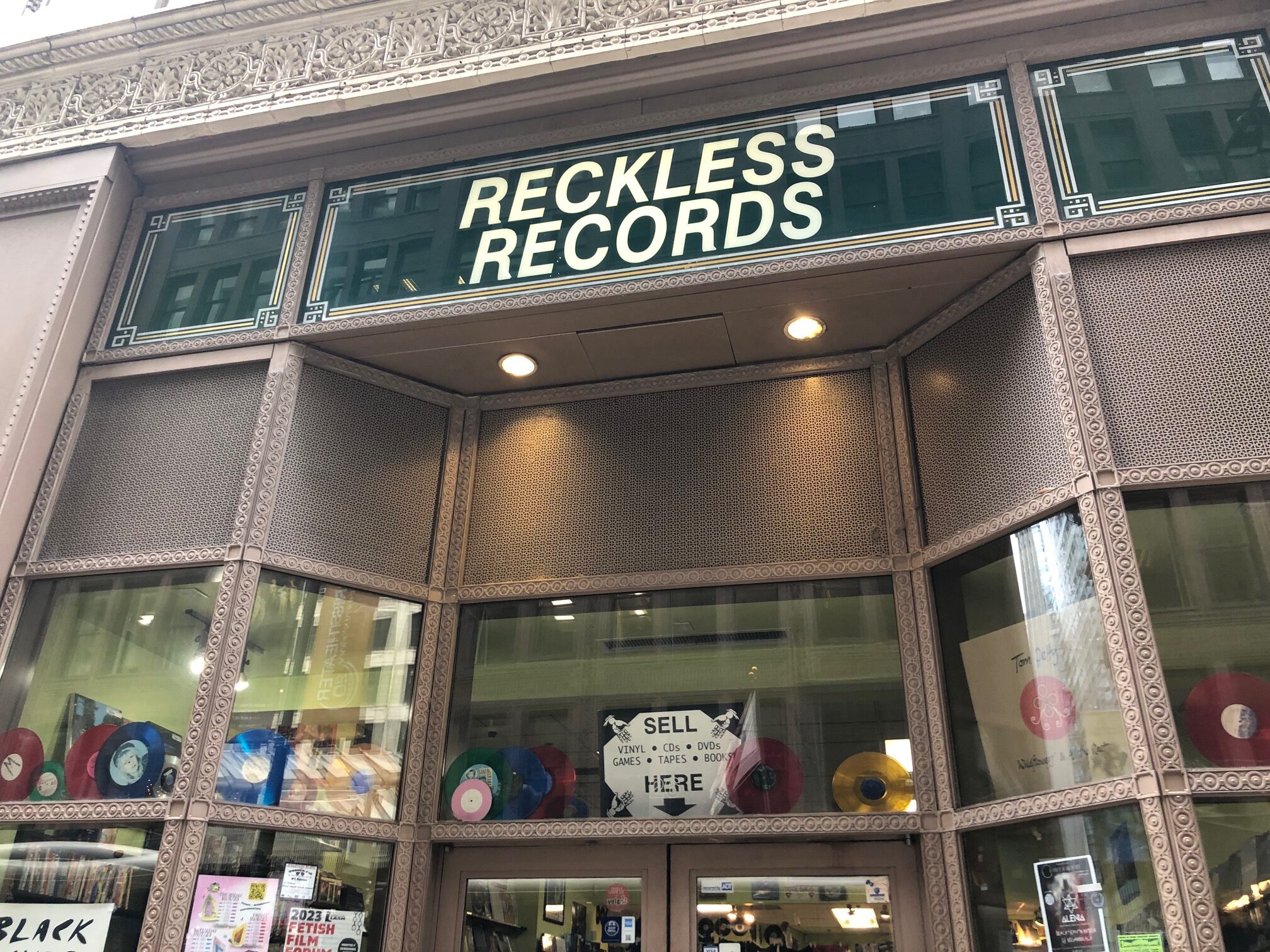
Reckless Records in Chicago. (Photo by Ben Fulton)
If necessity is the mother of invention, convenience is the father of a strange brand of privileged indifference.
The advent of indoor plumbing in the mid-nineteenth century improved daily life and public health by such exponential leaps and bounds that we shudder to think of life without an indoor toilet or running water. Music and movie streaming, on the other hand, merely makes it easier to transition from work into free time. Yet there are still people who prefer the old-time religion of vinyl records and, on occasion, a Blu-Ray DVD. As long as your internet connection works, there is no thumbing through an assortment of records or compact discs to reconvene with a favorite title manifest in a physical item. A simple scroll-and-click does the trick.
Like its Viking ancestors of centuries past, Sweden’s Spotify has since 2008 charged the shores of the music industry to raid the pockets of almost anyone who ever hoped to make a living off recorded music revenues. Musicians loathed it, and they still loathe it. Everyone else embraced its wild convenience. The soundtrack of every teenager’s nightly shower, or bedroom sulk, is an infinite supply of alphabetized digital files. Today’s youth may never know the rite of passage that was lugging a vinyl or CD collection from apartment to apartment as part of a move. Barring a few hiccups of pirated “fake” streaming files and algorithms yet to be written that will keep the media safe from AI-generated content, the future of streaming seems sound.
From a music lover’s perspective, this sea change in how we have come to acquire music in the modern age is akin to all the changes in how we began to eat when hunting and farming gave way to the neighborhood grocery store. To borrow a phrase from the sales department, we no longer “eat what we kill.” In this way digital music files are the analog of lab-grown, “virtual” meat. The taste may be identical, but the experience is nowhere near the same.
The current crop of music fans is almost invisibly divided into two camps: those who remember the days of hunting down vinyl LPs and, to an extent CDs, and those who do not.
In all the hours of my years as a teenager and twenty-something, when I sought a certain music title—say, the original UK track list of The Clash’s debut LP, an obscure Krautrock find or, most exciting of all, a coveted Joy Division bootleg—the hunt itself was at least half the fun. This hot pursuit consisted of detours and digressions from the family holiday spent near a major city or the road trip with friends; phone calls to record stores answered by surly clerks; sweat-filled, trial-and-error walks down unfamiliar streets in search of store locations (without the aid of GPS, natch); the slow dive of immersion into each and every record store’s complete environment before rifling through the stacks to find just that one item, or several. To find what you sought was an object earned. There was no “file” piped through the internet.
One of the best memories of my twenties is tromping hours through a soggy and fog-soaked San Francisco and through the doors of Reckless Records, just minutes away from spotting a hen’s-tooth-rare copy of Young Marble Giants’ Colossal Youth LP (on the original Domino Records label!) the minute it was traded in by lovely young Goth woman desperate to raise cash for next month’s rent. “Please take good care of it,” she said with a sad congratulation. “That was a hard record to give up!”
I celebrated my find—which spanned two years from the day I knew it must somehow be found to the day it was discovered—with a meal of shepherd’s pie at an Irish pub plastered with IRA posters from the hunger-strike era. That record still resides in my collection. The memory of looking for it, finding it, buying it, and holding it is one with the physical object itself. Listening to it on a turntable was a ritual beyond music, which incorporated the experience of what it took to find it.
“Feeling lurks in that interval of time between desire and its consummation. Shorten that interval, break down all those unnecessary barriers,” wrote Aldous Huxley, asking us to ask ourselves what we gain or lose by having everything we want, when we want it, all the time.
Tolstoy answered that question in his own way through the character Nikolai in the famous hunting scene of War and Peace. To know, feel, and understand that the means and sought-after goal are inseparably intertwined is to be “seized by that irresistible hunting feeling in which a man forgets all his former intentions, like a lovesick man in the presence of his beloved.”
None of these sensations are confined to collecting old records, of course. The same sensations are at work in book and antique hounds, stamp and coin collectors, and culinary historians vigilant to find as-yet undiscovered recipes.
With these pursuits as well, the internet has smashed barriers. With buyers across the world having easy access to the same selling source, one chief result of this convenience is an increase in price. The time and chance of finding what you are looking for is divorced from the aura of how you happened to find it, and where. “Getting” is reduced to an eBay bidding war, a search engine, a cold algorithm. What is priceless above all is no longer the object, but the pursuit.
